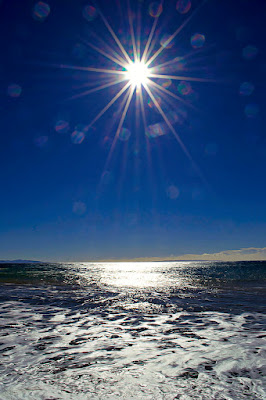Any of the feasts of Our Lady always remind me of one thing: what God can do through any human being who has an open heart. God does not need greatness, just an open heart.
You could be given the impression that it would have been easier for Mary than for other people because she was without sin. However, the fact that she was without sin means that she would have been more sensitive to evil than others and would have suffered more because of it than anyone else. From what we know in the Scriptures, she suffered from the time that the Angel appeared to her and told her that God was asking her to be the mother of Jesus. She was already legally married to Joseph, but not living with him, as was the tradition with Jewish marriages. Now she was pregnant before she came to live with Joseph in a way that was impossible to explain or understand from a human point of view. So how would Mary explain this to Joseph? What embarrassment, fear and tension there must have been for her. You can imagine how people talked about her. And it wasn’t explained to Joseph until the last moment just as he was about to divorce her.
The birth of Jesus was in very difficult circumstances. They then had to flee in the middle of the night when they found out that Herod was going to try and kill the child.
Later on, Mary and Joseph lost Jesus for three days. During his public ministry she watched as the tension was building up with people for and against Jesus. And finally the arrest, torture and death of Jesus. But Mary never gave up hope. She continued to believe that God would make sense of it. After the resurrection she stayed with and encouraged the Apostles as they waited for the gift of the Spirit before Pentecost.
If you take any of those situations that Mary found herself in, you can imagine from a human point of view how we could see many of them as her life ‘going wrong.’ Why would God allow all the misunderstanding over her pregnancy? Why didn’t He allow Joseph to understand it straight away? Why all the public humiliation? Remember that she was only fourteen or fifteen when she became pregnant. How could God allow a death threat against Jesus just after his birth? Why did He have to go through all the rejection during his public ministry? Why did such an innocent man have to be tortured and killed? Yet all of those events fitted together perfectly in God’s plan.
 |
| Star of the Sea |
Now think of your own life. Think of all the things that you think of as having gone wrong. The unexpected changes, sicknesses, jobs unfairly lost, painful marriage breakups, the death of a child. How could God allow all these things to happen when He loves us so much? Yet if you look back at the life of Our Lady, it reminds us that there is a bigger picture, which doesn’t make any sense to us now. It will only make sense when we look back after we have gone to heaven. That’s one reason why the life of Our Lady is so important. We remember many of the events in her life when everything seemed to go wrong, but now we see played their part in God’s plan. Do you think there is any event in her life that she would now say to God would be better if it hadn’t happened?
Over the centuries Mary has appeared in many parts of the world, particularly over the last century. Many of those apparitions have been officially recognized, some not yet. What is significant in each place, is that what she says is nearly always the same. She tells us that we cannot exist without God, that we need to turn away from sin and obey the Commandments. We need to read Scripture, go to Mass and to pray and fast. She is always pointing us to Jesus. It is never about herself. She tells us that we need to confess our sins often, yet sadly very few people feel the need for this. I wonder who convinced them that it is not necessary? She also tells us that we cannot live without God. Our life makes no sense without God. We will only be on this earth for a short time, so we need to be careful how we use our time. It always makes me sad when I see or hear of people who get obsessed with money and material things, as if that was the answer to everything. It is also sad to see how people can become obsessed with power, which so often leads to the suffering of others. If God the Father sends Our Lady to us, then we need to listen to what she is telling us, because this is what God is telling us. If we try and live without God we will destroy ourselves, which is what we see happening around us. But what is also important is that the messages, just like the Gospel, are messages of hope, because God is merciful and God will always take us back if we sincerely repent. But our lives don’t make any sense apart from God. God must be at the center.
Think for a moment of all the time we spend preparing for our career on earth. Think of all the time an energy you put into preparing your children so that they will have a good life on earth. How much time do we spend preparing for what comes after this life. This life will soon be over. The world to come will never end.
 |
| Lilly of the Valley |
The life of Mary is a wonderful witness to us for several reasons. One, it is a reminder to us of what God can do through a human being. Mary is fully human and we should never worship her as that would be idolatry, but we give her great honor as Jesus did. We ask for her intercession as we continue on our journey to heaven. She has been through dreadful suffering, so we can ask for her help, knowing that she understands our suffering. When we find ourselves losing hope, remember that Mary never lost hope, in spite of that she had to go through. Much of her life didn’t make sense at the time. So we ask her to help us not to lose hope when our life doesn’t seem to make sense either, but to trust in God’s wisdom that it will make sense when we are shown the whole picture.
Holy Mary, Mother of God, pray for us sinners, now and at the hour of our death. Amen.

























